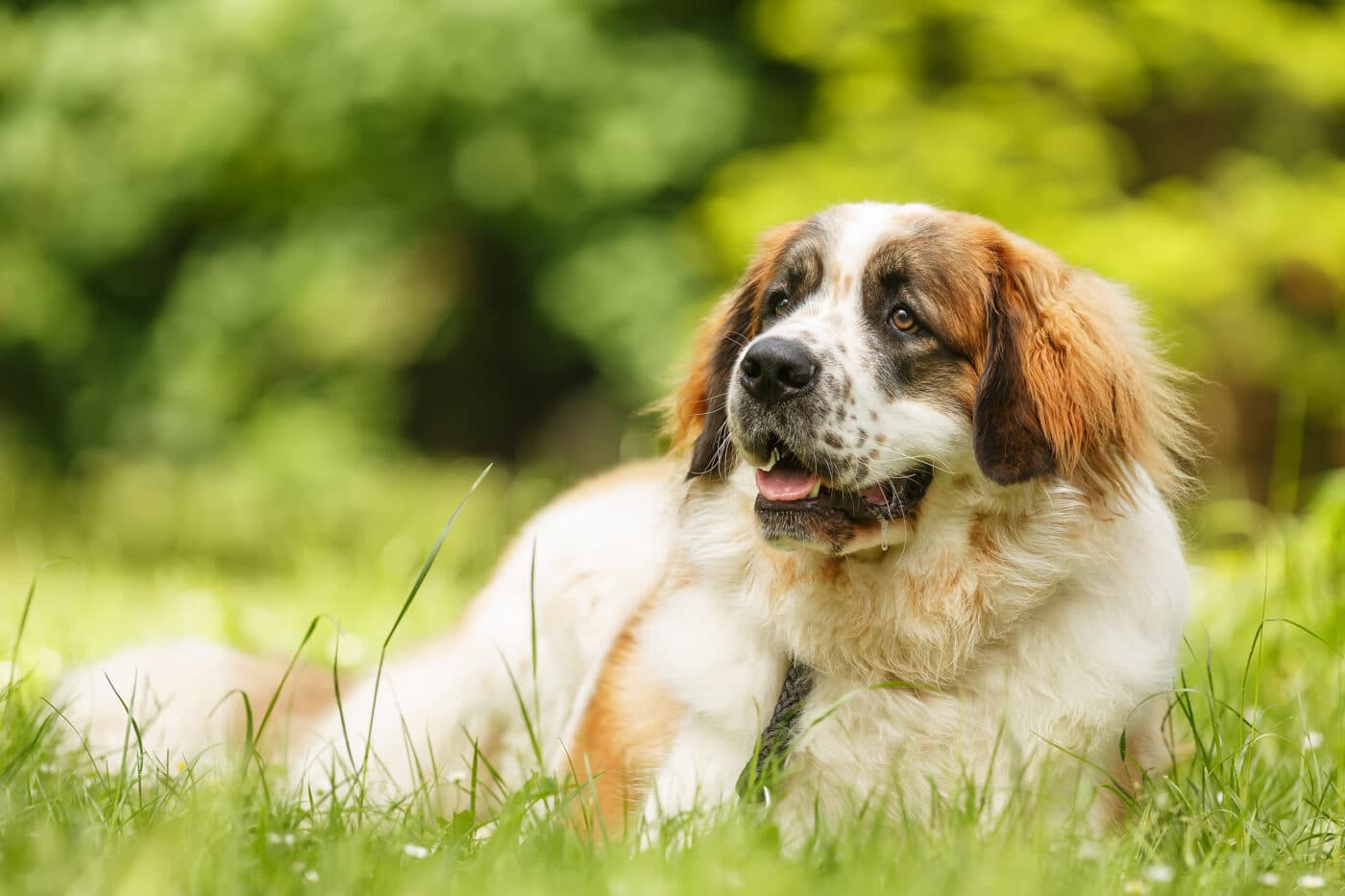 Shutterstock
Shutterstock
Russia, the largest country on Earth, spans multiple time zones and provides ample space for the development of diverse dog breeds. These Russian breeds were uniquely created to withstand the harsh climate and serve various purposes, from guarding to hunting. Despite their rugged origins, these dogs, like all others, are devoted to their families and thrive on love and care. Each Russian breed carries its unique traits, but they all share the common need for affection and the bond they form with their human companions.
Black Russian Terrier
 Shutterstock
Shutterstock
The Black Russian Terrier was developed in the 1940s in the then USSR. It was used mainly as a military working dog, created by breeding a multitude of imported breeds from occupied countries, such as Giant Schnauzers and Rottweilers. Until 1957, Black Russian Terriers only came out of Moscow’s Red Star Kennel.
Bolonka
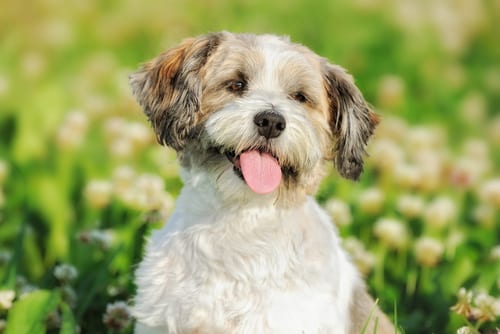 Shutterstock
Shutterstock
The Russian Tsvetnaya Bolonka is a Russian dog breed of Bichon type. It covers two breeds: the Franzuskaya Bolonka and the Bolonka Zwetnaya. The ancestor of the breed was a French dog brought to Czarist Russia in the 18th and 19th centuries. The fluffy dogs were bred mostly as fashionable companions for wealthy women.
Borzoi
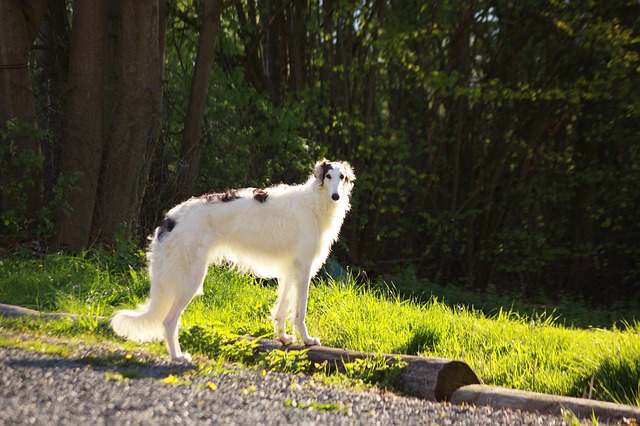 Shutterstock
Shutterstock
The Borzoi, or Russian Wolfhound, is a sighthound bred for hunting wolves that dates back to the 9th and 10th centuries. Hunting trials were held for a long period to determine proper breeding stock for the Borzoi until wolf hunting with sighthounds fell out of fashion.
Caucasian Shepherd Dog
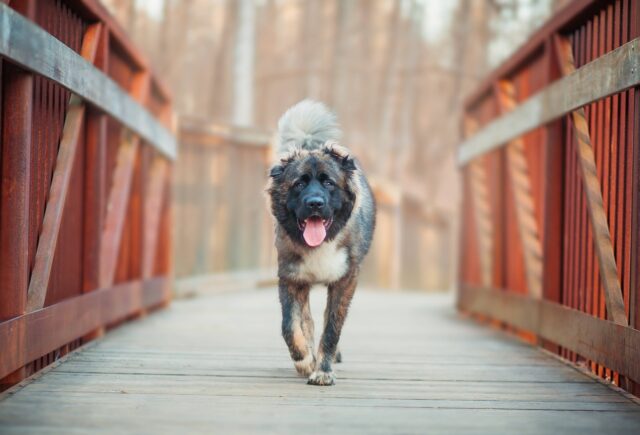 Shutterstock
Shutterstock
The Caucasian Shepherd Dog, or Caucasian Ovcharka, is a Molosser breed originating in the Caucasus mountains. Most of the Caucasian dogs are similar in type and vary only slightly depending on their region, although they were crossbred. The Caucasian Shepherd Dog was created as a livestock and property guardian. This large dog is known for its aggressive nature.
Central Asian Shepherd Dog
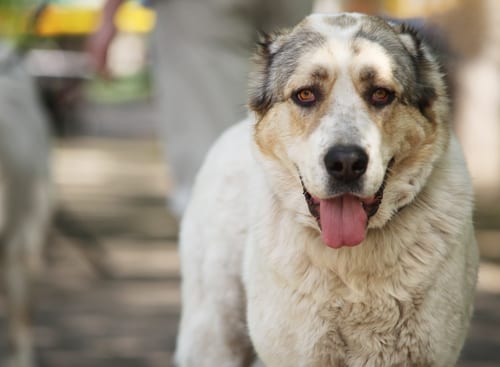 Shutterstock
Shutterstock
The Central Asian Shepherd Dog originates from the former Soviet Union and was bred as a livestock and property guardian. The breed was also used in traditional dogfighting, in which the dogs seldom injured each other. Shepherds and farmers set their males against each other to find the most dominant dog in the group, but not necessarily the most aggressive.
Chortai
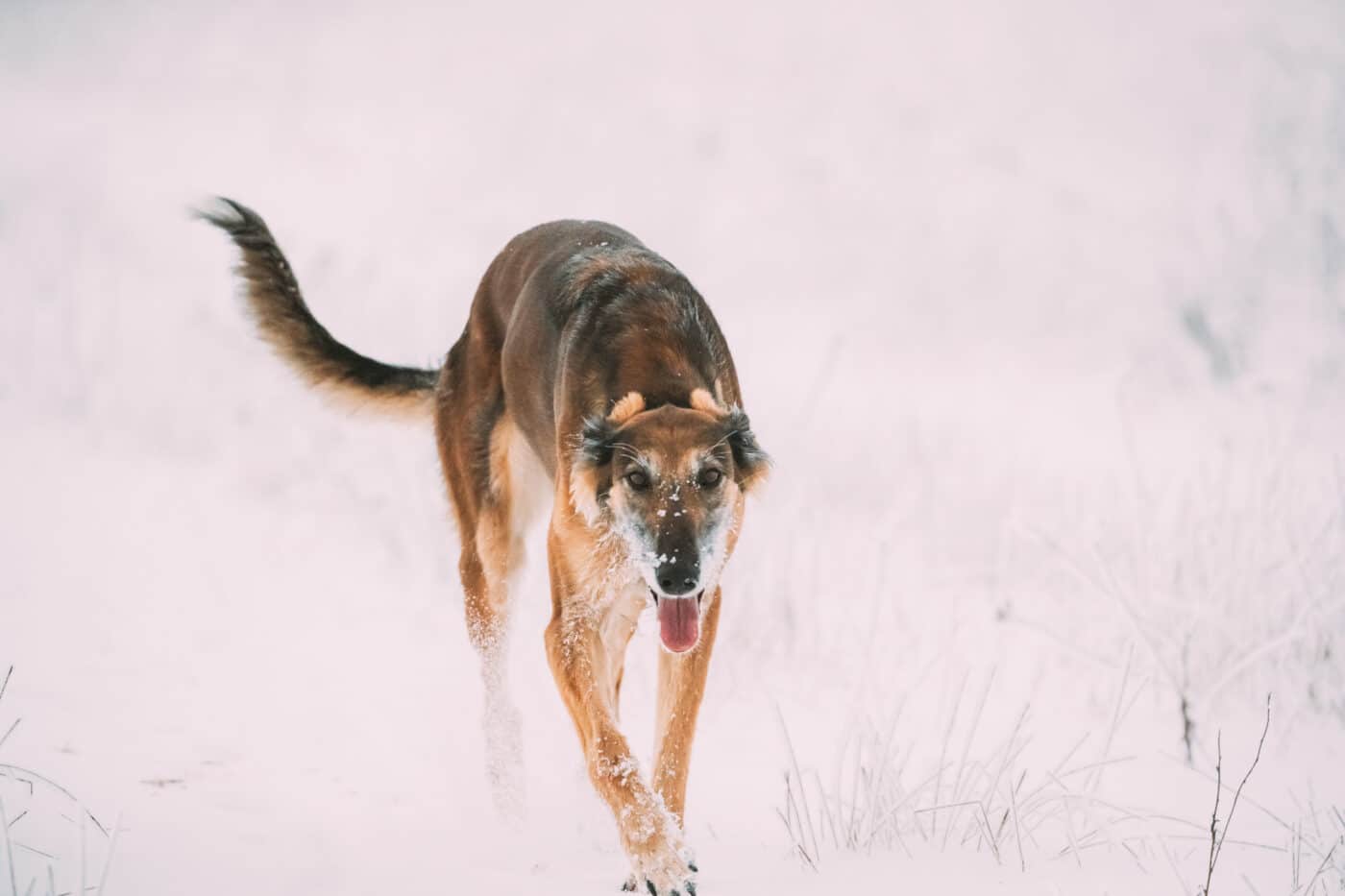 Shutterstock
Shutterstock
A sighthound hailing from Russia, the Chortai, also spelled Chortaj, looks much like a Greyhound without the dramatic waistline. Thought to be descended from the now-extinct dog breeds the Krymskaja and the Gorskaja, the National Purebred Society reports the first descriptions of the Chortai appeared in the mid-nineteenth century. A fast hound, the Chortai was used in conjunction with hunters on horseback and their falcons or other birds of prey.
East European Shepherd
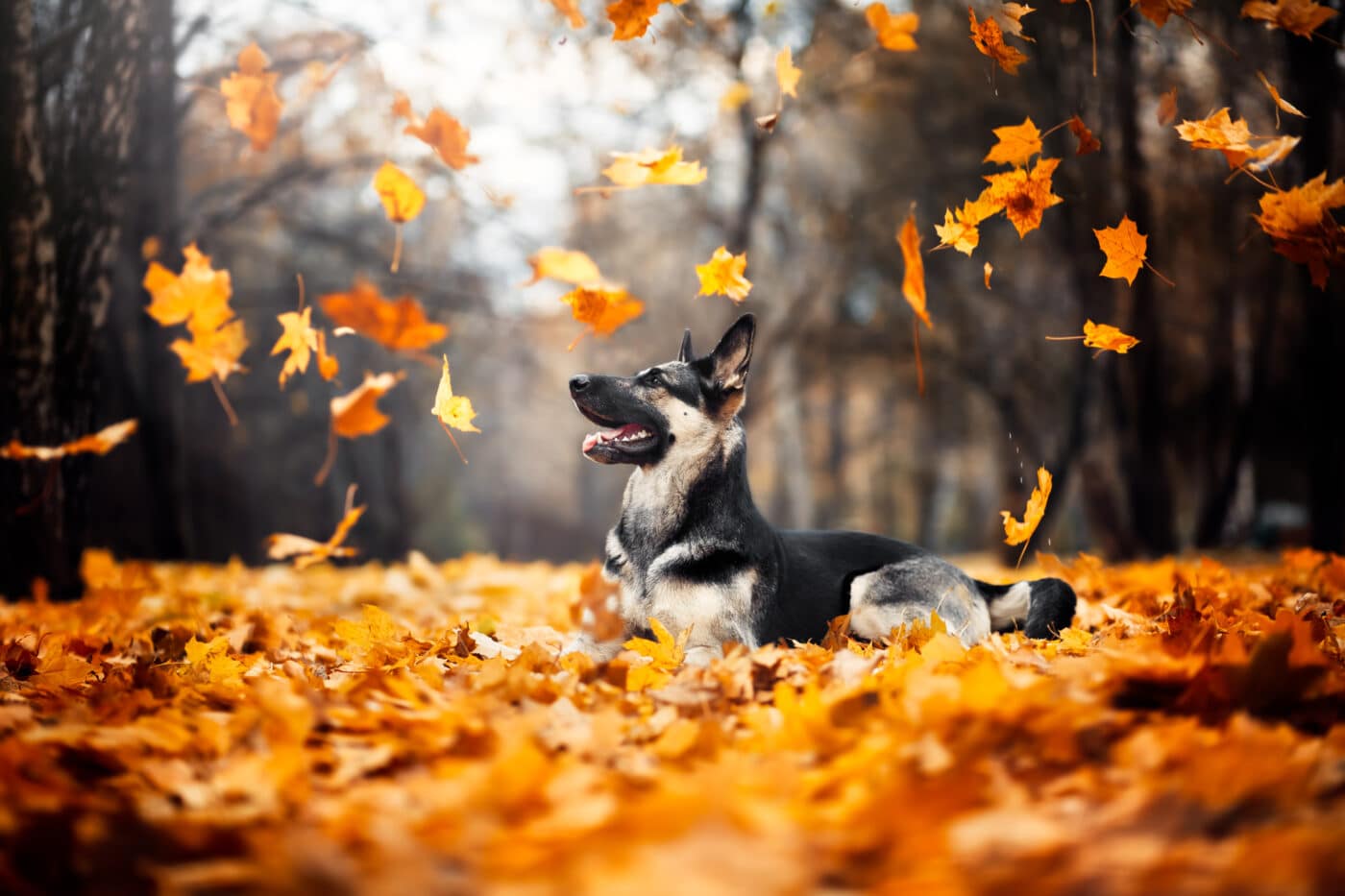 Shutterstock
Shutterstock
This Russian dog breed came to be after German Shepherds were bred to withstand the harsh Russian climate. With such a similar appearance, it’s no wonder these dogs are also known as the Russian German Shepherd. As a large dog with strong protective instincts, the East European Shepherd makes an ideal working dog.
Laika
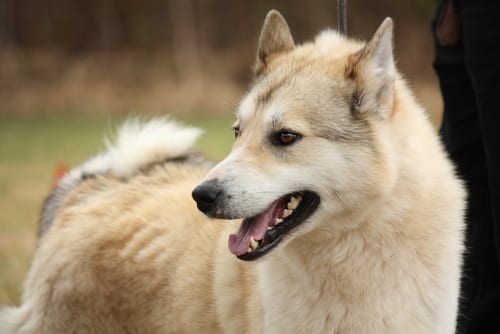 Shutterstock
Shutterstock
The Laika is a hunting dog originating in Russia, known for its method of hunting, called bark-pointing, in which it would “point” out prey by barking at it. The breed is separated into four different types, the Eastern Siberian Laika, Russo-European Laika, Western Siberian Laika, and the Yakutian Laika. They were used frequently up until the 19th and 20th centuries when industrialization brought other types of hunting dogs to Russia.
Moscow Watchdog
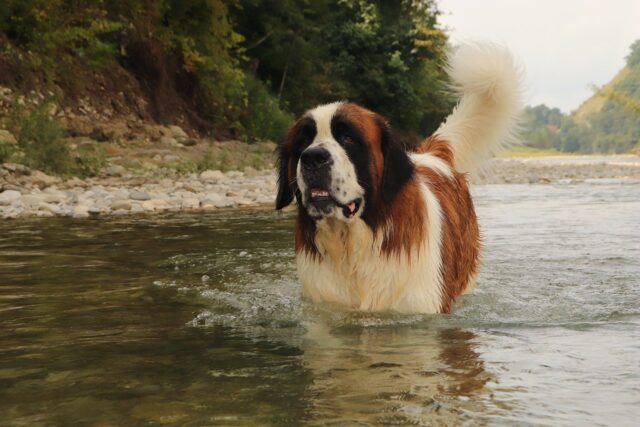 Shutterstock
Shutterstock
This Russian dog is popular in its home country. It was bred by the army and descended from crosses of the St. Bernard, the Caucasian Shepherd Dog, and the Russian Pinto Hound, to create dependable and easily trained guard dogs. While not a cuddly pup, the breed can be trained to be patient with the right handling. It isn’t for families, as its genetics hold the memory of its past as war dogs with a fighting spirit.
Moscow Water Dog
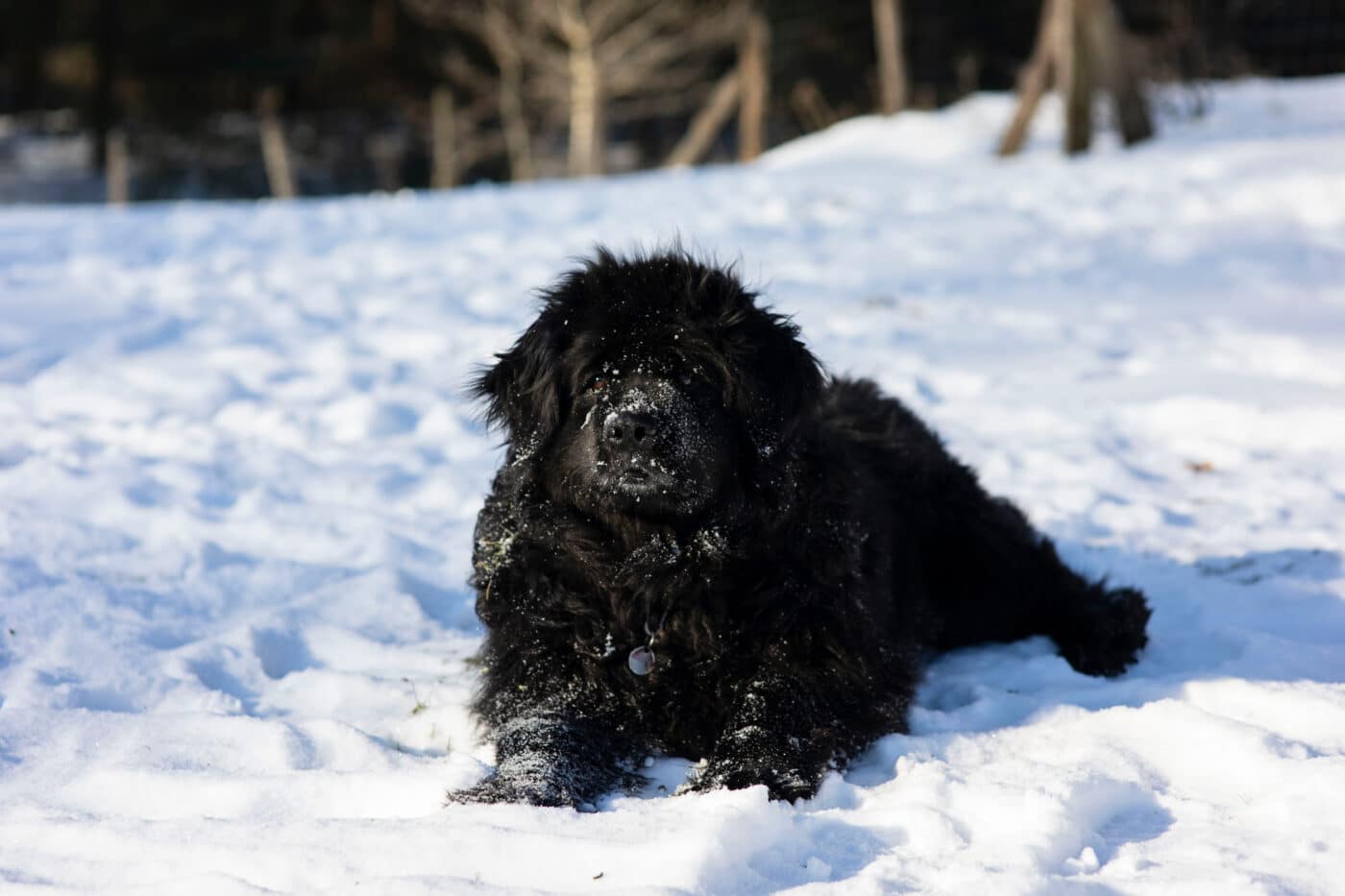 Shutterstock
Shutterstock
The Moscow Water Dog, also known as the Moscow Vodolaz, was bred from Caucasian Shepherd Dogs and East European Shepherds to create the ideal dog breed for use in the Russian Navy. Now an extinct dog breed, the Moscow Water Dog weighed over 100 pounds as an adult and had an aggressive nature. He was a dog built for work, not hugs.
Russian Spaniel
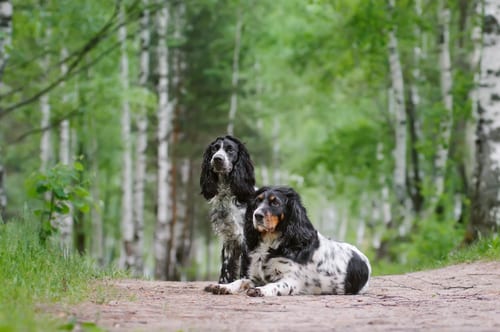 Shutterstock
Shutterstock
The Russian Spaniel was standardized in 1951 and was developed by crossbreeding various spaniels. Cocker Spaniels were used for hunting in Russia but were found to be of little use because their small size couldn’t get them through the harsh Russian terrain. Breeding for longer-legged gun dogs soon became popular.
Russian Tracker
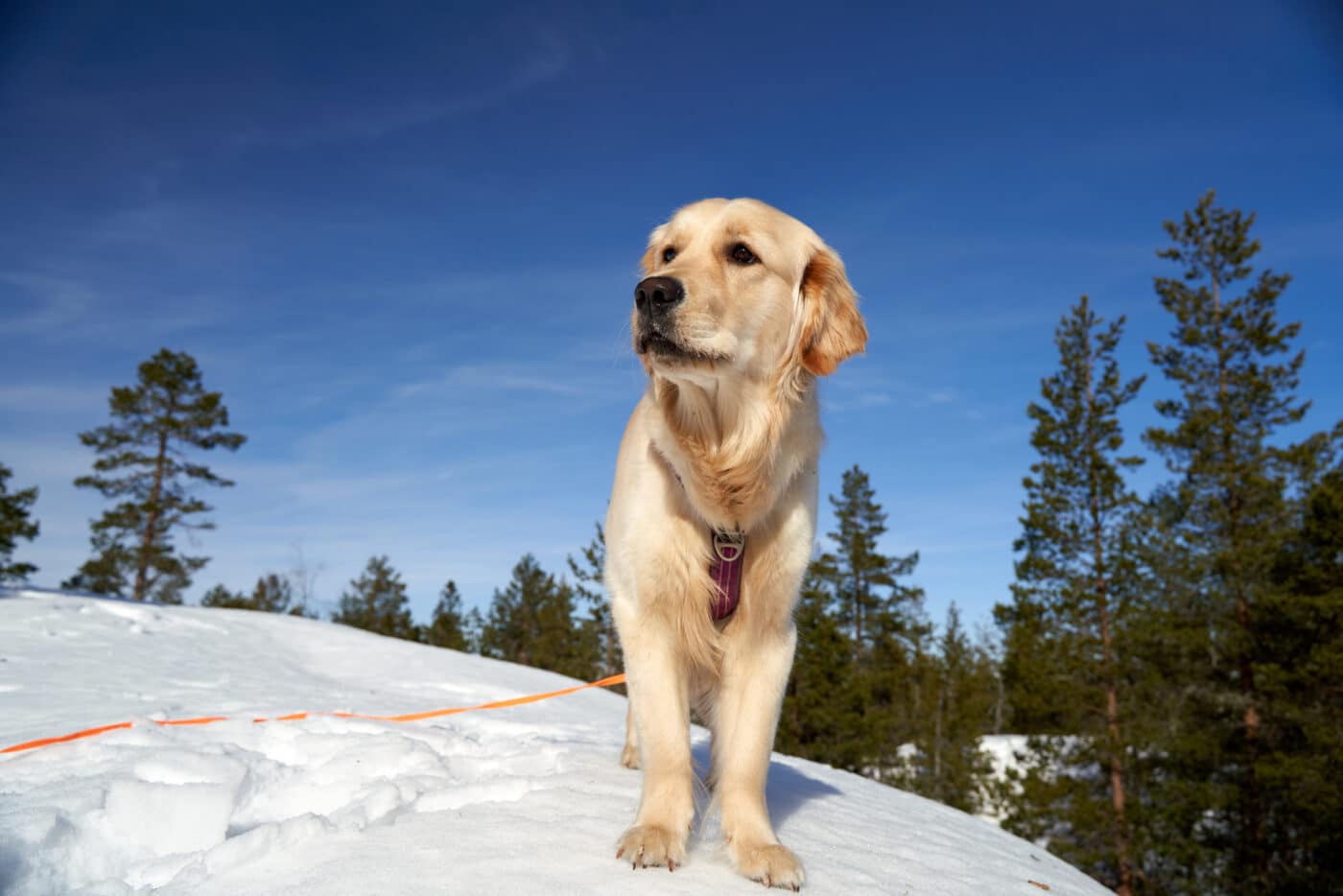 Shutterstock
Shutterstock
Another extinct dog breed, the Russian Tracker, was bred to hunt in the Caucasus Mountains. Having to battle the harsh, cold elements, this Russian dog breed bore a double-layered coat and extreme intelligence. As one of the breeds in the Golden Retriever lineage, the Tracker looks much like a Golden, sharing the same glamorous coat and build, but tends to be larger, reaching weights of 100 lbs.
Russian Toy
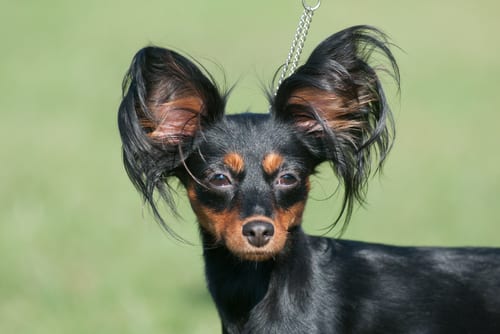 Shutterstock
Shutterstock
The Russian Toy was bred exclusively in Russia until their political isolation diminished. There are two types, a smooth and long-coated dog, with their various standards written in 1966. It wasn’t until the 1990s that the breed was known outside of its homeland, and it faced near extinction after the fall of the Iron Curtain. Its original purpose was to be a watchdog and ratter.
Samoyed
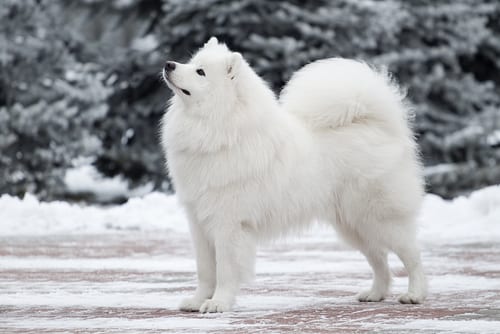 Shutterstock
Shutterstock
The Samoyed was originally a reindeer herder and carting dog developed by the Samoyedic peoples of Siberia. Its thick coat kept it warm and safe during the extremely harsh winter conditions. Recent studies have confirmed that the Samoyed is one of the most ancient dog breeds and they have been bred and trained for over 3,000 years.
Siberian Husky
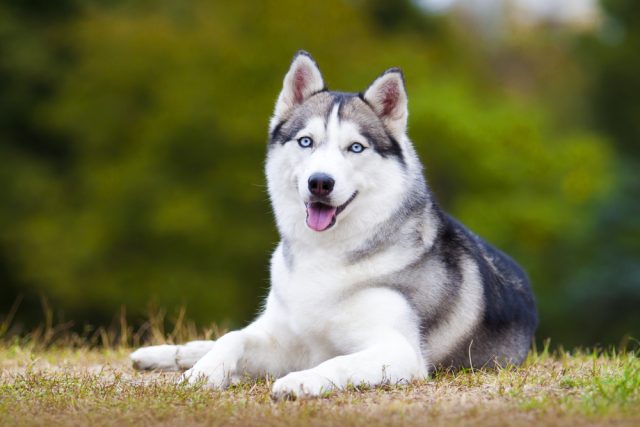 Shutterstock
Shutterstock
The Siberian Husky is one of the most ancient dog breeds in existence, as confirmed by DNA analysis of various dog breeds. It was developed in the harsh Siberian climate as a sledding and carting dog. The breed helped people survive arctic winters. It became popularized during the 1925 Alaskan diphtheria outbreak, in which a team of Siberian Huskies was able to transport serum over 600 miles when no other mode of transportation could make it through the climate.
South Russian Ovcharka
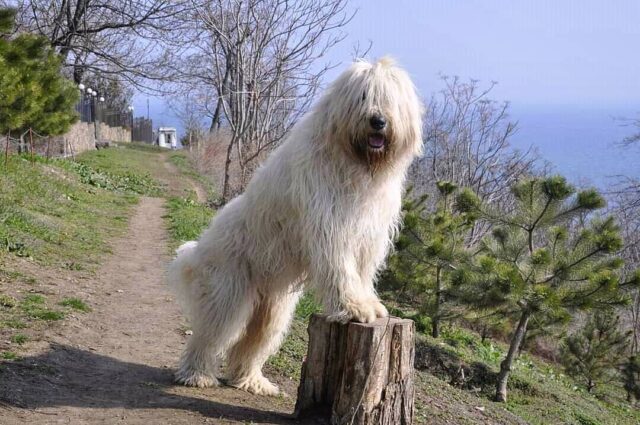 Shutterstock
Shutterstock
Called also the South Russian Sheepdog and the Ukrainian Shepherd Dog, the Ovcharka is a hardworking livestock guard dog with a shaggy coat designed to keep them warm in the cold Russian winter. While protective of flocks and their people, the Ovcharka tend to be independent. They require an experienced owner for firm training against their stubborn ways.
Sulimov Dog
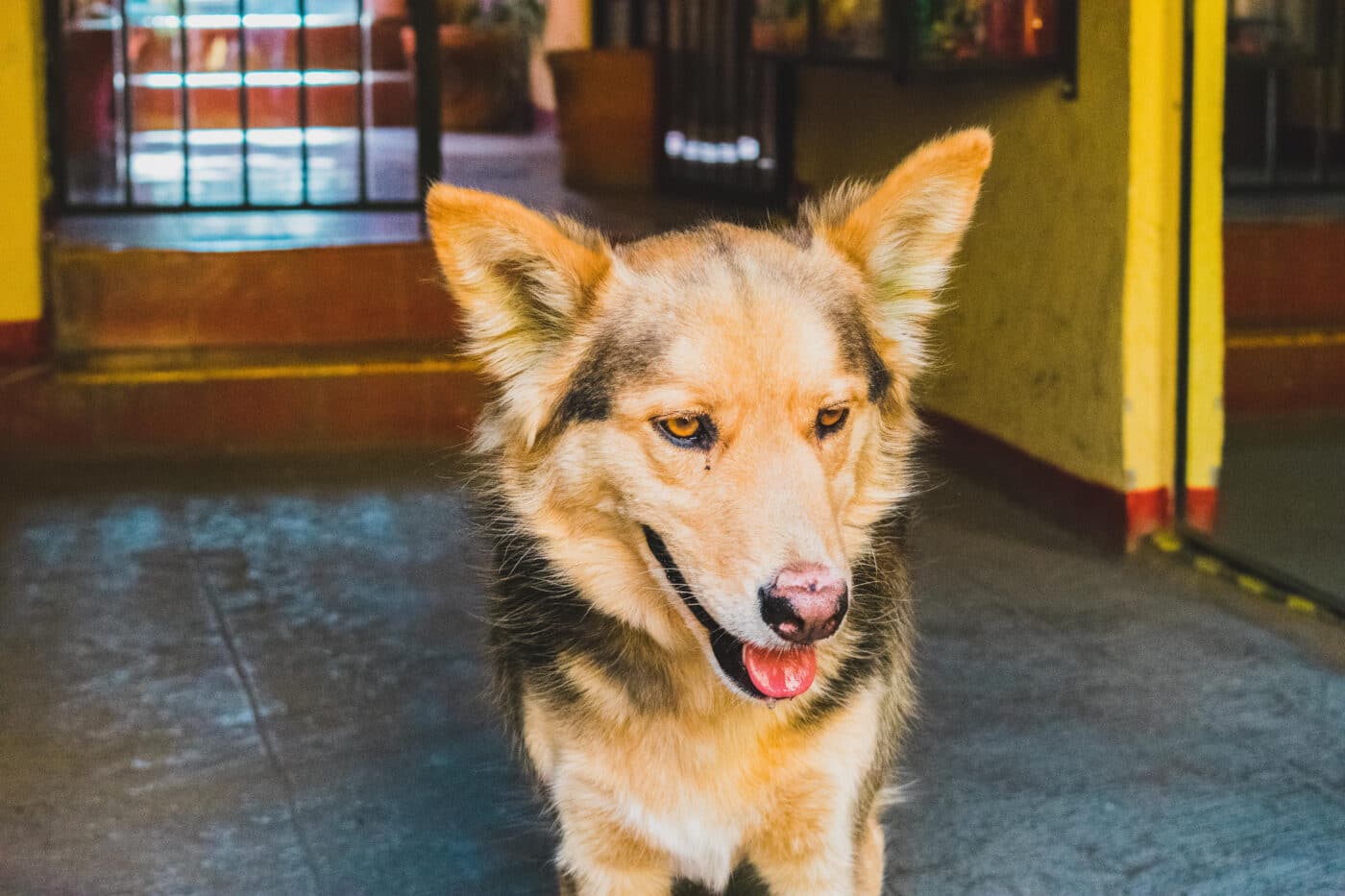 Shutterstock
Shutterstock
Developed by Soviet biologist Klim Sulimov in the 1980s, the Sulimov is a Russian dog breed created by crossing Laponian herding dogs and the Golden Jackal. They are reportedly energetic dogs who are eager to please. However, they aren’t seen often outside Russia. Because of their strong sense of smell, Sulimov dogs are employed to sniff out explosives at Moscow’s Sheremetyevo Airport.
Russia’s Top Tail-Wagging Comrades
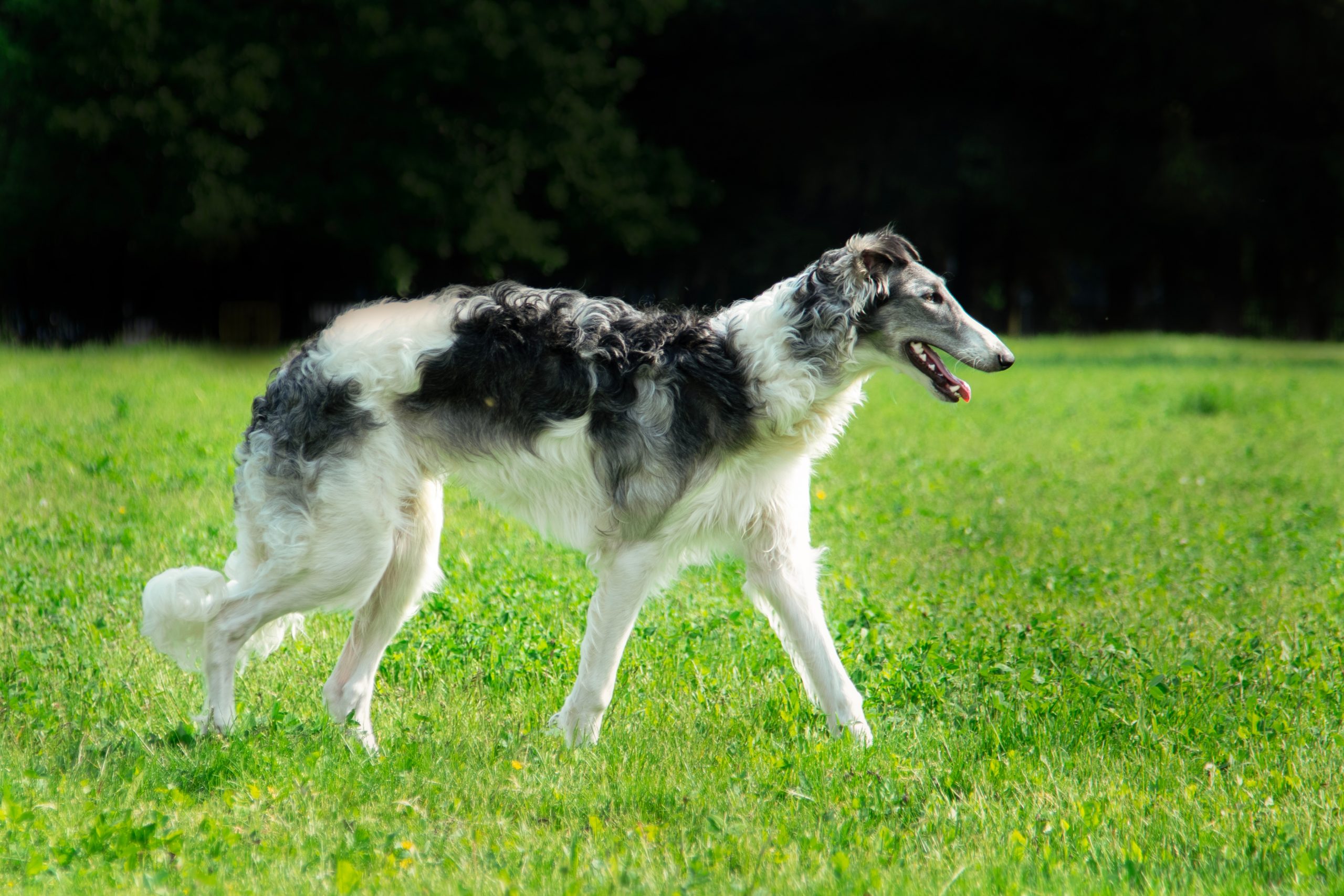 Shutterstock
Shutterstock
These Russian dog breeds offer unique qualities that make them both beloved companions and capable working dogs. From the affectionate Russian Toy Terrier to the protective Caucasian Shepherd Dog, these breeds embody the resilience and adaptability of their homeland. Whether you need a loyal guard dog, a skilled hunter, or a loving family pet, Russian breeds provide a variety of options to suit any lifestyle. Welcoming one into your home means embracing a piece of Russian history and culture along with a devoted four-legged friend.
 Toledo, United States.
Toledo, United States.